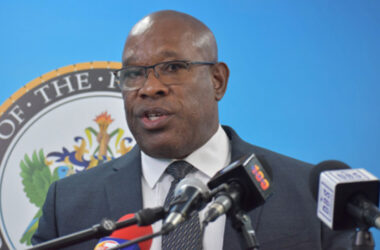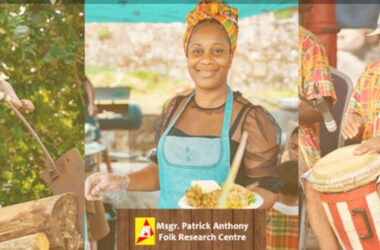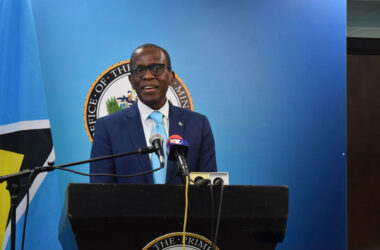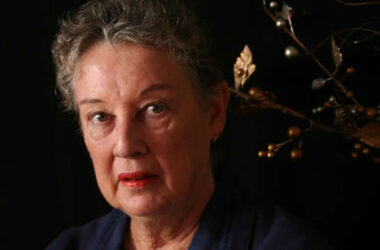A DEBATE Wednesday night at the Bay Gardens Hotel on whether Saint Lucia should or should not legalize cannabis/marijuana appeared on one hand to be a step in the right direction — and on the other, an exercise in futility.
Organized by the Bar Association in place of its annual public memorial lecture, the debate, which featured prominent marijuana advocate, Pathologist Stephen King in support of legalization, produced some strong arguments for not just legalizing the plant, but also for transforming it into a cash crop that could replace the ailing banana industry.
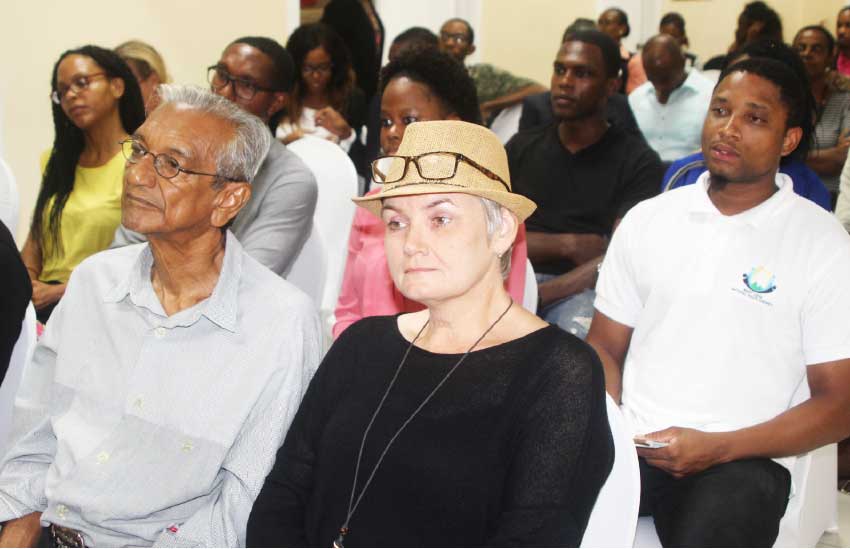
King and his co-debater attorney Maurice Compton based their arguments not just from the findings from academic researchers on the use and benefits of marijuana, but also from real live events having to do with the herb and how governments around the world are treating the plant.
But the two not only presented the cash benefits of the plant to a country and its advantages as a medicine to certain ailments, but also highlighted the dangers associated with the use of the plant, the different types of marijuana available and the need to education users to assist them in making inform decisions regarding their habitual or first-time use of the plant.
But for Tris-Ann Richards (Dental Hygienist), Yohann Willix (Bartender) and Danielia Chambers (attorney) – all members of the NIC Toastmasters Club opposing the legalization of marijuana, Saint Lucia is simply unprepared for legalization of the plant, not simply as a result of the dangers marijuana poses to its users, especially on the brain of adolescent and the 20 somethings, but as a result of its weak laws pertaining to the sale of alcohol to under-aged persons.
The opposing team asked: “Our stance is clear. Creep before you fly or even walk. The Government of Saint Lucia can’t even regulate the sale and use of alcohol by our youths, how are they going to effectively control and regulate the use of marijuana?”
The more than two hours long debate generated some insightful comments from some of those who attended the event, the majority of whom appear to support the legalization of marijuana.
However, there were a few who believed that the topic selected for debate was a step backward rather than forward. They are saying that with the changing global environment to marijuana, where countries which once criminalized the plant are now cashing handsomely from it by decriminalizing and legalizing it in their respective territories, Saint Lucia should now be debating the commercial aspects of the plant and putting regulatory frameworks in place for its decriminalization and legalization.
Saint Lucia seems to be uncertain as to what direction to go regarding marijuana, whether to continue with its criminalization laws or to go the way some of its sister countries in the OECS have gone and other countries of the world.
Not even a report from the CARICOM Regional Commission on Marijuana, released this year, seems to be affecting, for the positive, the thinking of the Government of Saint Lucia regarding a revision of the marijuana regime it has so stoutly has in place.
The CARICOM Conference of Heads of Government mandated the establishment of a Commission at its Twenty-Fifth Inter-Sessional Meeting in March 2014 to interrogate the issue of possible reforms to the legal regimes regulating cannabis/ marijuana in CARICOM countries. The Heads were deeply concerned that thousands of young persons throughout the region had suffered incarceration for marijuana use and consumption and many, after their first experiences with the law, resolved to continue with crime as a way of life. Inconsistent applications of the law had led to deep resentment and non-cooperation with law enforcement agencies.
The Heads were also concern that without action, the region could be left behind because of fast-paced global trends toward law reform in terms of cannabis/marijuana. Already, several states in the United States had decriminalized the use of marijuana for medicinal uses. Uruguay, a sister OAS state, had legalized the consumption of marijuana.
According to the Commission, marijuana is a substance with psychoactive properties which has the potential for negative health consequences and mental health complications especially among the youth. However, the health risks are concentrated in high risk persons, in particular, the youth, and specific risk situations.
Even as it acknowledges the need for more robust research with regard to some claims, the Commission says it is satisfied that significant support exists in the literature with regards to the potential beneficial and adverse effects associated with marijuana, such that a realistic law reform process and regulatory regime can be designed.
The Commission, in its report, said there is conclusive evidence that it is beneficial for several ailments; there is moderately strong evidence for another group of illnesses and emerging evidence, with good prospects for scientific proof in the near future, for others. More importantly, scientific evidence has now disproved, or severely challenges, some of the most popularly held beliefs and perceptions of harm that currently underpin the law, in particular, the gateway theory, addiction and causative factors in relation to psychosis. It also establishes that cannabis is less harmful, or no more harmful than substances that are not prohibited under law like alcohol.
The Commission accepts the evidence that the original classification of cannabis in law as a dangerous drug with no value was made without the benefit of scientific research and data. This classification, first in international treaties, was spearheaded by the US and was automatically followed domestically. Documents declassified and released to the public in 2002 illustrate that the US Shafer Commission, in a 1972 Report to the US Congress, itself challenged this classification, finding that marijuana presented little harm and should be decriminalized.





